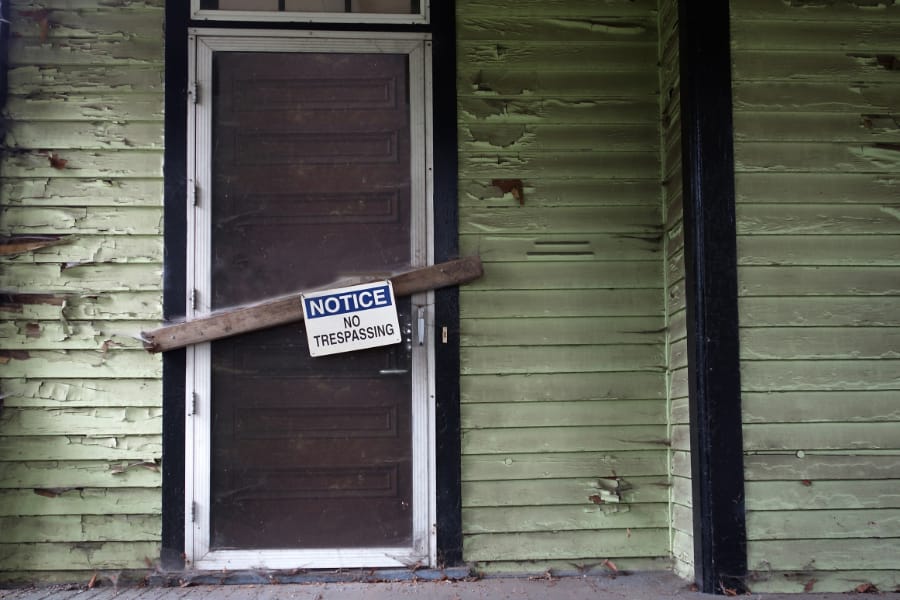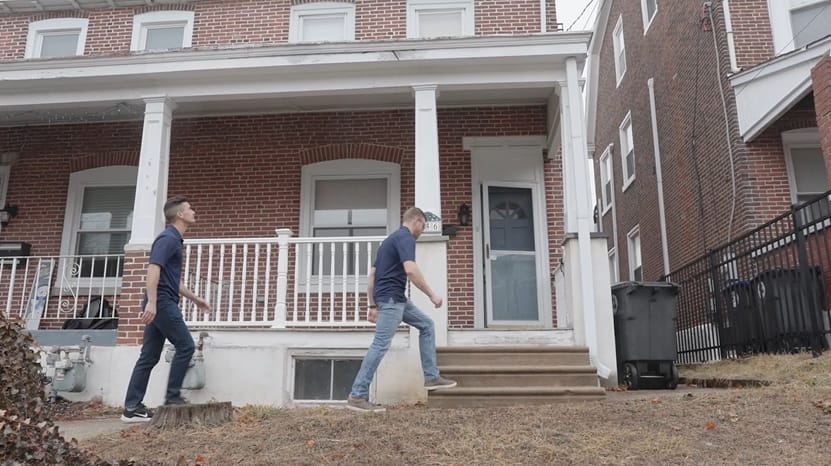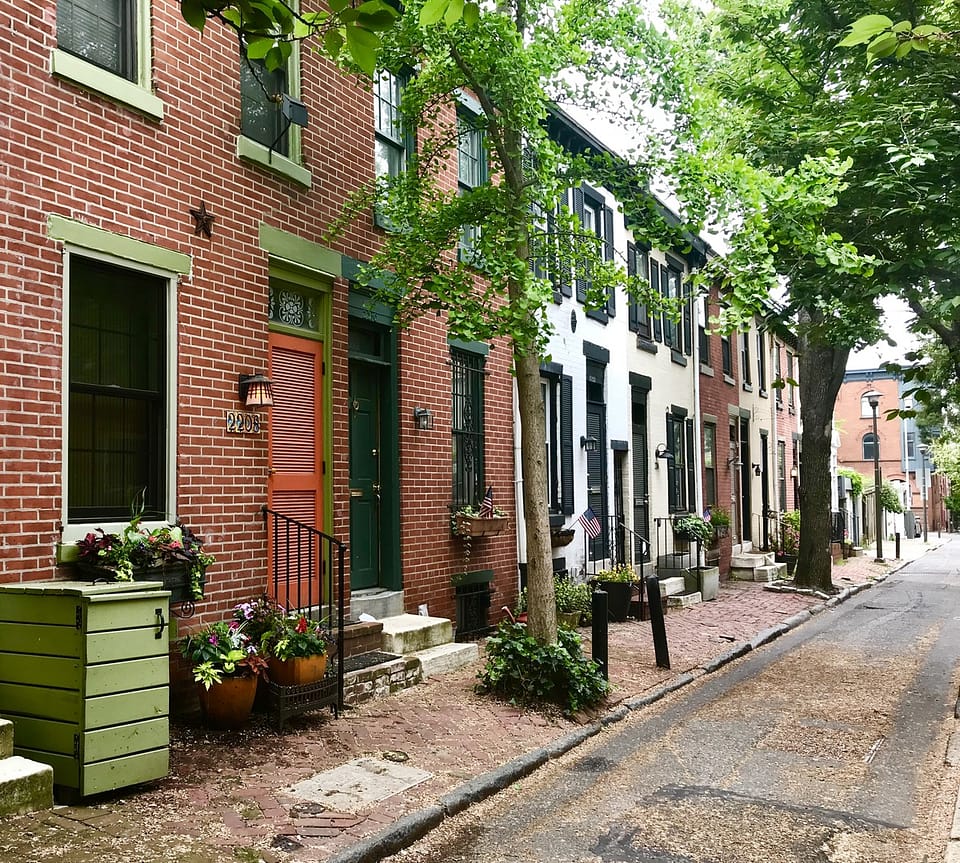Best Practices For Selling a Vacant House

Through our cash homebuying business, Jon and I have seen it all. Selling a home is tedious overall. You have fights, things fall off at the last minute, and it’s complete chaos. So what happens when you’re selling a vacant home? Imagine the above things, but more complicated.
Advertising a vacant property can make it a target for squatters or burglars. A real estate golden rule is, “to have security and protect your vacant property before and during the selling process.”
There are specific practices to follow when selling a vacant house.
1) Let Local Police Know You Are Selling
“Should law enforcement be involved in selling a vacant house? Huh? What are you saying, Alex?”
This is what my friend Mike said when I advised him to inform the local police about listing his vacant home for sale. As a taxpayer, you have the right to the services of law enforcement. Most police departments will undertake courtesy checks of your vacant property to ensure safety.
Some police departments may also include extra patrols in the neighborhood to signify their presence. This is helpful as a vacant home is at a higher risk than others in the area.
2) Tell Neighbors the House is Going On the Market

It’s also advisable to inform the neighbors around the vacant property that it is going on the market. Dependable neighbors can keep an eye on the property. It’s for their safety, too. Help can be in the form of a neighborhood watch, or ask your real estate agent to swing by.
Just be sure not to advertise the fact that the property is vacant if you don’t trust your neighbors or have experienced prior issues with them. You don’t want to draw attention to the vacant property. After all, most break-ins are committed by people in proximity to the property.
3) Make the Property Look Occupied
Although you are selling the vacant home, the vacancy doesn’t need to be obvious. Your listing agent will market the home with images on the listing website. These will be accessible to everyone with an internet connection, including the squatters.
I would advise that “the listing should give the illusion that the home is occupied.”
4) Decide Yes or No to Open Houses
Open houses have their pros and cons. From the standpoint of a real estate agent, some will say that to “sell your home fast,” you should hold an open house at least once a week. Others will tell you that an open house is a waste of time and a tool used only by real estate agents to connect with potential clients.
Just remember that while an open house can help sell a house, it also invites criminals to walk into your home. This gives them a chance to review the layout of the property, ask questions about who lives there, and scope out any valuables to steal later. This is particularly true if the home is vacant and empty, and your real estate agent advertises the property as such.
Jon and I went to an open house for a vacant property in Philadelphia. The fact that the property was unoccupied was quite evident. One week later, we found out that the property had been vandalized.
5) Increase Home Security
Many entrances can be used to access a vacant home. Back doors and windows are often a primary target for most homes. But so is the front door, especially in a vacant property (when the chances of people paying attention to who is coming and going are slimmer). In fact, according to ADT, 35% of burglars break in through the front door.
This is why it is important to increase home security when selling a vacant property. Consider adding deadbolt locks, chains, window tracks, and an alarm system. Motion-activated lights in and around the home can also be a great deterrent for burglars.
Jon believes that “the more secure you make your vacant home, the less likely it will become a target for criminals.”
6) Pick Up Mail
One of the most obvious signs that your home is vacant or unoccupied is the number of newspapers and mail bursting out of your mailbox. Once that pile gets large enough to be seen from the street, you are signaling to anyone around that the property is vacant. If there’s a “for sale” board outside to accompany the mail, this makes the property even more of a target.
This may appear to be a simple activity, yet the results are massive. If you live too far away from the property, ask a neighbor, friend, or real estate agent to lend a hand. Better yet, get your mail redirected, cancel subscriptions, and put a sign up asking for no junk mail to be delivered in the mailbox.
7) Keep Up On Curb Appeal

Your real estate agent will tell you that the visual people get from the street, known as curb appeal, has a huge impact on whether or not your home sells. When selling a vacant property, it’s still important to keep up with the way your home looks from the outside. This means keeping the lawn trimmed, weeding flower beds, raking and bagging leaves, and plowing snow from the driveway and walks.
By choosing to ignore these tasks, your property will appear abandoned, making it a target. Additionally, it will also reduce the visual appearance of your home to potential buyers. This can prevent buyers from booking a showing. It can even encourage some buyers to make a low offer. After all, a badly maintained property can be a sign that other parts of the home are not in good condition.
Our Experience With A Vacant House
Through our homebuying company, we came across a property for purchase. Jon and I viewed the property on three occasions, and each time it seemed like a nice home. But all along, it was a vacant home.
I asked the listing agent how they were able to “deceive” prospective buyers.
“We knew the property was vacant and had to work around that. We never had an open house, and set up individual viewings. This way, we were prepared to keep the environment as we wanted it to appear. It was just about appearances”.
In this case, the real estate agent worked creatively to keep the vacant home safe until it was sold.
Final Thoughts
Selling a vacant house is not much different from selling an occupied home in terms of the process. It simply needs additional precautions and some out-of-the-box thinking from real estate professionals.
